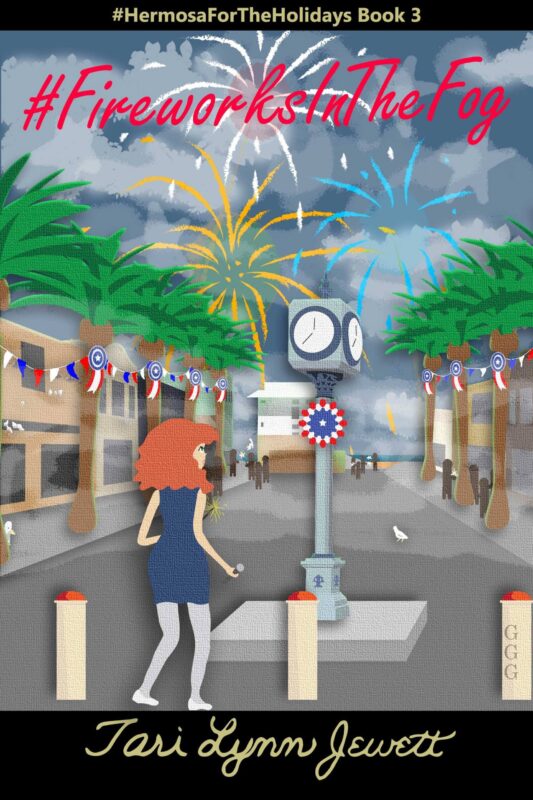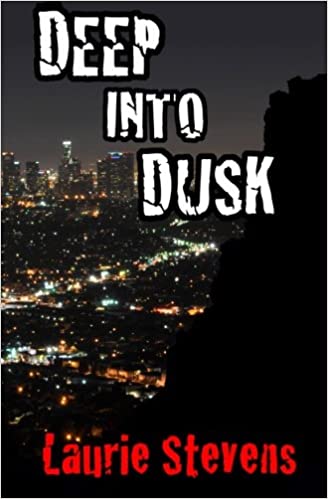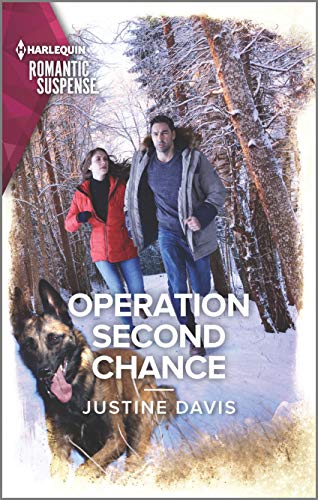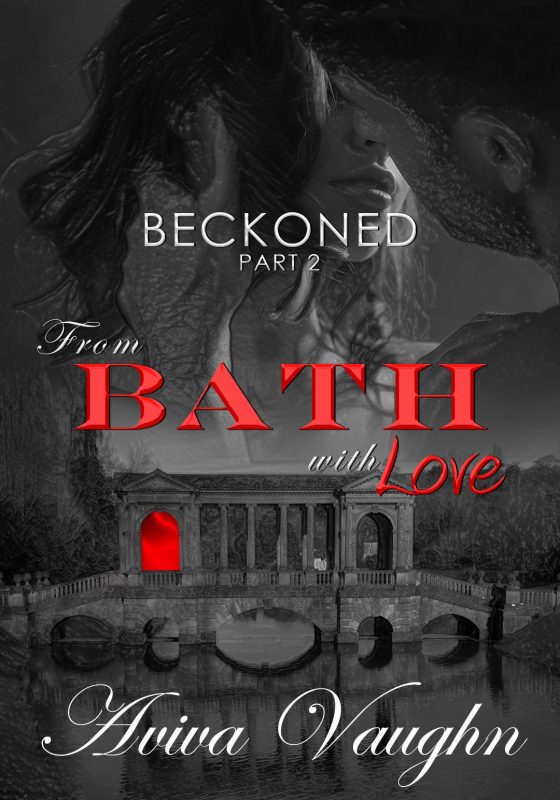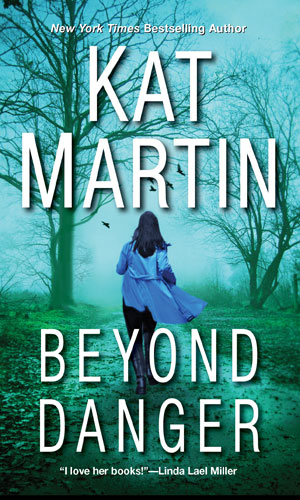Ilona’s Wolf: #free @amazon through Dec. 20 by @LyndiLamont
December 16, 2018 by Lyndi Lamont in category The Romance Journey by Linda Mclaughlin tagged as fairy tales, free, Ilona's Wolf, Paranormal RomanceMy steamy werewolf novella, Ilona’s Wolf, will be free at amazon.com starting today and running through Dec. 20! If you’re looking for a hot read on a cold night, this story is for you!
Ilona’s Wolf

Kingdoms & Legends, Part 1
Blurb:
Imagine a world filled with magic, a tormented knight, a damsel in distress, an evil sorcerer…
While picking herbs in the woods, Princess Ilona is rescued from a woodsman by a wolf. When the creature licks her wounds, it is suddenly transformed into a man. A very handsome, very naked man who makes passionate love to her in a glade.
Cursed by an evil wizard, Rolf was trapped in wolf form until he tasted the blood of a royal. Now he must escort the princess on a hazardous journey back to the castle to stop an ill-fated wedding.
Passion flares between them, but both know there is no future for Ilona and her werewolf. Or is there? In a world where magic and passion combine, anything may be possible.
Buy (or borrow on Kindle Unlimited) at: Amazon US, Amazon AU, Amazon Canada, and Amazon UK.

Wishing everyone a very happy holiday season!
Lyndi Lamont
The Law Is a Ass: Women’s History and the Law @LyndiLamont
September 16, 2014 by Lyndi Lamont in category The Romance Journey by Linda Mclaughlin tagged as divorce, England, history, Linda McLaughlin, marriage, research, women's history“If the law supposes that,” said Mr. Bumble,… “the law is a ass—a idiot. If that’s the eye of the law, the law is a bachelor; and the worst I wish the law is that his eye may be opened by experience—by experience.”
The quote above is generally attributed to Charles Dickens, Oliver Twist, published serially 1837-39, per Bartleby though Dickens may have copied it from a 17th century play, Revenge for Honour by George Chapman. (See http://www.phrases.org.uk/meanings/the-law-is-an-ass.html) Whatever the origin of the phrase, it makes a fair point. (The word ass, of course, refers to a donkey.)
Nineteenth-century women were likely to agree with Mr. Bumble, when one considers the treatment of women under the laws of the period. I covered a bit of this during my recent talk on Herstory at Orange County RWA in August, though women weren’t the only people treated badly by the law. The nineteenth century saw a number of reform movements, from abolitionism to the fight for women’s suffrage. The latter was kicked off in July 19-20, 1848 in Seneca Falls, N.Y. The first two resolutions passed at the convention concern legal matters:
Resolved, That such laws as conflict, in any way, with the true and substantial happiness of woman, are contrary to the great precept of nature, and of no validity; for this is “superior in obligation to any other.
Resolved, That all laws which prevent woman from occupying such a station in society as her conscience shall dictate, or which place her in a position inferior to that of man, are contrary to the great precept of nature, and therefore of no force or authority.
It wasn’t just that women weren’t allowed to vote, though that was a primary focus for reform. For several centuries, a legal practice called coverture was in place in England and the U.S. whereby a woman gave up all rights when she married. Her husband controlled any money or property she brought to the union. Single women, including widows, could own property and enter into contracts without male approval. Thanks to suffragist activism, laws were passed abolishing this practice in the late 19th century.
Current law is confusing enough, but when you’re writing historical romance, the law can be a veritable minefield of potential blunders. Research your time period and location if legal matters play a part in your plot. What kind of legal system was in place at the time? English common law, the Napoleonic Code, church canonical law? In the U.S., laws vary from state to state, but that isn’t always the case in other countries.
British laws were enforced throughout England and Wales, but didn’t necessarily apply to Scotland. For instance, in the 18th and early 19th centuries, the age of consent for marriage was substantially lower in Scotland than the one-and-twenty years required in England, encouraging couples without parental approval to elope across the border. The Gretna Green marriage is common plot device in Regency romances. The 1753 Marriage Act was also the first law to require a formal ceremony. It also required weddings to take place in the morning, hence the wedding breakfast to follow.
Getting out of a marriage was even more difficult. Prior to the mid-19th century when judicial divorce was authorized, it was extremely difficult if not impossible to get a divorce in Britain. In Regency times, one had to petition Parliament for a divorce. Can you imagine having to ask Congress to agree to let someone divorce? Yikes! Even then it was more like a legal separation than a true divorce. Annulments weren’t necessarily easy to obtain either. A law permitting judicial divorce, the Matrimonial Causes Act, finally passed in 1857.
More information on marriage and divorce laws can be found at these sites:
A Brief History of Marriage: Marriage Laws and Women’s Financial Independence by
Karen Offen
Kelly Hager, “Chipping Away at Coverture: The Matrimonial Causes Act of 1857”
Linda McLaughlin
0 0 Read moreemaginings: To Blog or Not To Blog? @LyndiLamont
March 16, 2014 by Lyndi Lamont in category The Romance Journey by Linda Mclaughlin tagged as #RLFblog, blogging, emaginings, Kayelle Allen, Kristen Lamb, Marketing For Romance Writers, Rise of the Machines, Triberr, TwitterTo Blog or Not To Blog? That is one question every writer must ponder.
I have a love/hate relationship with blogging. It’s not that I mind doing it, but I resent the time involved that takes me away from writing, and I’m not sure blogging has been worth my while. What I am sure is that I haven’t gone about it in a very systematic or effective way, though I try.
My big project for this year is to launch a new website and blog combining both of my writing names into one site, for easier maintenance. In the meantime, I’m still learning as much as I can about author branding, platforms and the use of blogs.
 In January, I read Rise of the Machines: Human Authors in a Digital World by Kristen Lamb, the well-known blogger and social media maven. The first chapter, The Changing Paradigm, was fascinating. She talks a lot about technological change in general, often quoting from Neil Postman, author of several books, including Technopoly. His contention was that technological change isn’t “addictive or subtractive but ecological”. Advances in technology change everything, including the way humans think, certainly changes the way we talk and write. Hashtags, emoticons, text speak… You all know what I’m talking about, like the changes or not.
In January, I read Rise of the Machines: Human Authors in a Digital World by Kristen Lamb, the well-known blogger and social media maven. The first chapter, The Changing Paradigm, was fascinating. She talks a lot about technological change in general, often quoting from Neil Postman, author of several books, including Technopoly. His contention was that technological change isn’t “addictive or subtractive but ecological”. Advances in technology change everything, including the way humans think, certainly changes the way we talk and write. Hashtags, emoticons, text speak… You all know what I’m talking about, like the changes or not.
Lamb is a big proponent of blogging, and while I value her advice, I’m not sure I can manage to do everything she recommends. But after reading her book, I think I have a better notion of what to do and, perhaps more importantly, what not to do. Some of her advice includes:
Be present on social media, at least some of the time; don’t automate everything.
Your name is your brand; use it in some version. Don’t tweet with a silly handle that no one will recognize.
Be careful what you share, esp. where politics and religion are concerned.
I wish her book had been available eight years ago when I started blogging, but as Kitty Bucholtz said in her time management class, it’s never too late to hit the Restart button. I’m hoping to do better when I get the new, better blog later this year, and I’d love to take a branding class from her some day.
In the meantime I have finally joined Triberr, the “Home of Influencers.” If you’re not familiar with Triberr, it’s a blog amplifier. Bloggers ban together in tribes and tweet each other’s blog posts, giving everyone an enhanced range. Since I joined, my blogs are getting tweeted more often, my page stats have shot up, and I’ve picked up new followers at Twitter. I’m still not getting a lot of comments, but I think that’s somewhat normal. Unless there’s a giveaway or a controversy, people are not inclined to comment a lot, esp. where the dreaded Capcha is involved. Personally, I hate those things. So does Kristen Lamb.
For more information on Triberr and how it interacts with Twitter, check out this post by Kayelle Allen, founder of Marketing For Romance Writers and another Social Media maven:
Blog Titles Matter in Triberr: Tips for Authors by Kayelle Allen #RLFblog #author
So to blog or not to blog? What is your answer. Leave a comment if you can get past the Capcha!
And if social media generally has you befuddled, OCC’s own Elena Dillon will be teaching an online class on Social Media for the Confused and Terrified from April 14 – May 11, 2014. I’m not terrified, but I often find myself confused, so I’ll be taking the class.
Linda McLaughlin / Lyndi Lamont
0 0 Read moreGetting Organized in Digital Age: Mission Impossible? @LyndiLamont
January 16, 2014 by Lyndi Lamont in category The Romance Journey by Linda Mclaughlin tagged as Linda McLaughlinAnother January, another set of resolutions some of us will never keep. Is it futile?
I wish I knew the answer to that age-old question. I suspect resolutions and/or yearly goals work for some people but not others. Or maybe they work some years but not others. There are organizing methods that work for some people, but not everyone. All I do know is that I have to try doing something different this year to make some sense out of my messed up schedule. That won’t eliminate the chaos in my creatively messy mind though.
In the interests of organization, I signed up for the current OCC/RWA online class Going the Distance: Time Management for the Writer taught by our own Kitty Bucholtz. The class has just started but I’m hopeful of learning new techniques to use my precious time more productively. Goal setting will be part of the process. I’ve had good luck with that technique before, when I’ve paid attention to my goals and taken steps to meet them. Goals somehow seem more serious than “New Year’s Resolutions” which have a bad track record, plus goals can be revised or abandoned in favor of something better. Once a New Year’s resolution is abandoned, it’s all over until the next year. Right?
Here’s a blog article by James Clear (recommended by Alina K. Field) that I found interesting:
Why Trying to Be Perfect Won’t Help You Achieve Your Goals (And What Will)
Rather than worrying about goals and resolutions he recommends focusing on repetitive behavior, i.e. creating habits that will keep you moving towards whatever it is you want to accomplish.
Author P. J. Sharon wrote a blog this week on sticking to your plan that you may find interesting.
I swear this was all easier in the 20thy century. Nowadays social media is such a distraction. I set out to read my email in the morning, but keep finding interesting links to click on, or something that cries out to be tweeted, and before I know it, I have seven or eight tabs open in Firefox and two hours have disappeared, never to be seen again.
In the cause of taming the social media monster, here are links to a couple of blog posts you may find helpful. Don’t be put off by the title of the first. It’s a pretty good beginner’s guide to Twitter, and I found some helpful ideas in it.
The Ultimate Twitter Guide to Crush Your Competition
Infographic: The Secrets of a Killer Blog Post
At the Marketing for Romance Writers blog, Erin Moore asks: Newbie World: Do I Really Need Social Media? Good advice for the new author.
Middle Grade author Chris Eboch on A Year of Success contains more links to older blog posts on the subject.
If anyone reading this post has any brilliant ideas or getting or staying organized, please let me know. Will you be setting goals? How did you do in 2013? I’d love to hear about your successes.
Hope to have some progress to share next month.
Linda McLaughlin / Lyndi Lamont
Linda McLaughlin grew up with a love of books and history, so it’s only natural she prefers writing historical romance. She loves transporting her readers into the past where her characters learn that, in the journey of life, love is the sweetest reward.
She also writes erotic romance under the name Lyndi Lamont, and is one half of the writing team of Lyn O’Farrell.
You can find her online at http://www.lindamclaughlin.com or http://www.lyndilamont.com.
Blog: http://flightsafancy.blogspot.com/
Facebook:
Linda McLaughlin Author http://www.facebook.com/LindaMcLaughlinAuthor
Lyndi Lamont http://www.facebook.com/LyndiLamont
Twitter: @LyndiLamont
Affiliate Links
A Slice of Orange is an affiliate with some of the booksellers listed on this website, including Barnes & Nobel, Books A Million, iBooks, Kobo, and Smashwords. This means A Slice of Orange may earn a small advertising fee from sales made through the links used on this website. There are reminders of these affiliate links on the pages for individual books.
Search A Slice of Orange
Find a Column
Archives
Featured Books
#FIREWORKS IN THE FOG
So, you’d like to become a social media star…
More info →DEEP INTO DUSK
In the second pulse-pounding thriller in the series, Detective Gabriel McRay is once again forced to face his inner demons
More info →OPERATION SECOND CHANCE
His guilt tore them apart
Can the truth set them free?
BECKONED, PART 2: FROM BATH WITH LOVE
Can fire and ice both survive?
More info →BEYOND DANGER
New York Times bestselling author Kat Martin brings page-turning suspense to a tale of secrets and passions turned deadly . . .
More info →Newsletter
Contributing Authors
Search A Slice of Orange
Find a Column
Archives
Authors in the Bookstore
- A. E. Decker
- A. J. Scudiere
- A.J. Sidransky
- Abby Collette
- Alanna Lucus
- Albert Marrin
- Alice Duncan
- Alina K. Field
- Alison Green Myers
- Andi Lawrencovna
- Andrew C Raiford
- Angela Pryce
- Aviva Vaughn
- Barbara Ankrum
- Bethlehem Writers Group, LLC
- Carol L. Wright
- Celeste Barclay
- Christina Alexandra
- Christopher D. Ochs
- Claire Davon
- Claire Naden
- Courtnee Turner Hoyle
- Courtney Annicchiarico
- D. Lieber
- Daniel V. Meier Jr.
- Debra Dixon
- Debra H. Goldstein
- Debra Holland
- Dee Ann Palmer
- Denise M. Colby
- Diane Benefiel
- Diane Sismour
- Dianna Sinovic
- DT Krippene
- E.B. Dawson
- Emilie Dallaire
- Emily Brightwell
- Emily PW Murphy
- Fae Rowen
- Faith L. Justice
- Frances Amati
- Geralyn Corcillo
- Glynnis Campbell
- Greg Jolley
- H. O. Charles
- Jaclyn Roché
- Jacqueline Diamond
- Janet Lynn and Will Zeilinger
- Jeff Baird
- Jenna Barwin
- Jenne Kern
- Jennifer D. Bokal
- Jennifer Lyon
- Jerome W. McFadden
- Jill Piscitello
- Jina Bacarr
- Jo A. Hiestand
- Jodi Bogert
- Jolina Petersheim
- Jonathan Maberry
- Joy Allyson
- Judy Duarte
- Justin Murphy
- Justine Davis
- Kat Martin
- Kidd Wadsworth
- Kitty Bucholtz
- Kristy Tate
- Larry Deibert
- Larry Hamilton
- Laura Drake
- Laurie Stevens
- Leslie Knowles
- Li-Ying Lundquist
- Linda Carroll-Bradd
- Linda Lappin
- Linda McLaughlin
- Linda O. Johnston
- Lisa Preston
- Lolo Paige
- Loran Holt
- Lyssa Kay Adams
- Madeline Ash
- Margarita Engle
- Marguerite Quantaine
- Marianne H. Donley
- Mary Castillo
- Maureen Klovers
- Megan Haskell
- Melanie Waterbury
- Melissa Chambers
- Melodie Winawer
- Meriam Wilhelm
- Mikel J. Wilson
- Mindy Neff
- Monica McCabe
- Nancy Brashear
- Neetu Malik
- Nikki Prince
- Once Upon Anthologies
- Paula Gail Benson
- Penny Reid
- Peter Barbour
- Priscilla Oliveras
- R. H. Kohno
- Rachel Hailey
- Ralph Hieb
- Ramcy Diek
- Ransom Stephens
- Rebecca Forster
- Renae Wrich
- Roxy Matthews
- Ryder Hunte Clancy
- Sally Paradysz
- Simone de Muñoz
- Sophie Barnes
- Susan Squires
- T. D. Fox
- Tara C. Allred
- Tara Lain
- Tari Lynn Jewett
- Terri Osburn
- Tracy Reed
- Vera Jane Cook
- Vicki Crum
- Writing Something Romantic
Affiliate Links
A Slice of Orange is an affiliate with some of the booksellers listed on this website, including Barnes & Nobel, Books A Million, iBooks, Kobo, and Smashwords. This means A Slice of Orange may earn a small advertising fee from sales made through the links used on this website. There are reminders of these affiliate links on the pages for individual books.


